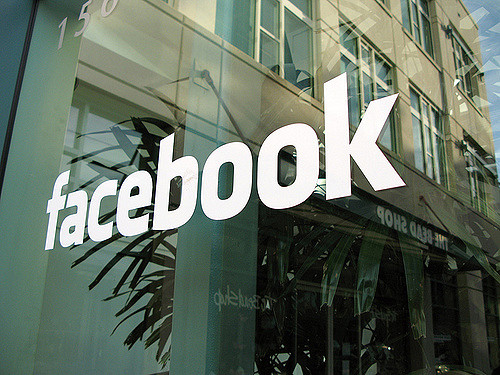Facebook on Thin Ice with Payment Foray

This week, Facebook (NASDAQ: FB) reported a strong quarter that beat analyst estimates. Market has reacted positively to its strong quarter and the recent FTC settlement.
Facebook’s Financials
Facebook’s Q2 revenues grew 28% to $16.88 billion, ahead of the market’s estimates of $16.5 billion. Net income was $2.6 billion or $0.91 per share. Adjusted earnings were $1.99 per share, beating analyst estimates of $1.88 for the quarter.
By segment, advertising revenues grew 28% over the year to $16.6 billion. Revenues from payments and other fees grew 36% to $262 million.
Among key metrics, daily active users grew 8% to 1.59 billion and monthly active users grew 8% to 2.41 billion. Mobile advertising revenue accounted for 94% of advertising revenues for the quarter, compared with 91% a year ago.
Facebook ended the quarter with $48.6 billion in cash and equivalents.
Facebook’s FTC Settlement
This week, Facebook entered into a settlement and modified consent order to resolve the inquiry of the FTC into its platform and user data practices. The FTC had been probing Facebook since March 2018 after news broke out on how political consulting firm Cambridge Analytica had access to the data of 87 million Facebook users.
As per the settlement with the FTC, Facebook will pay a penalty of $5 billion and significantly enhance its practices and processes for privacy compliance and oversight. It will be implementing a comprehensive expansion of its privacy program, including substantial management and board of directors oversight, stringent operational requirements and reporting obligations, and a process to regularly certify its compliance with the privacy program to the FTC.
Last quarter, Facebook had recorded a one-time charge of $3 billion as a contingency for a possible fine by the FTC. In the second quarter, it recorded an additional $2 billion accrual in connection with the FTC fine.
Facebook’s Workplace
Facebook has recently overhauled the pricing plans for its collaboration app Workplace. From its current pricing triers of free and $3 per user, per month, it now plans to offer three plans: free; $4 per user, per month; and $8 per user, per month.
The free plan Workplace Essential will have 5 gigabytes of storage and each organization can have up to 20 groups. Workplace Advanced, the $4 plan, will limit storage to 1 terabyte per user, but will have unlimited groups. Workplace Enterprise, the $8 plan, will offer unlimited storage and groups and will give subscribers early access to new features.
Compared to other enterprise collaboration apps, Workplace is more affordable. Slack charges monthly user fees of $6.67 to $12.50, Cisco charges between $13.50 and $26.95 per meeting host, per month for its Webex video and messaging bundle.
Launched in 2016, Workplace has been adopted by more than 30,000 companies worldwide including Nestlé, Vodafone, GSK, Telefonica, AstraZeneca, and Delta Airlines. It has particularly gained traction among large organizations that have a high proportion of non-office workers such as Walmart, Domino’s, and Starbucks.
Facebook’s Payment Foray
Facebook’s WhatsApp has close to 1.5 billion users globally and 400 million users in India, with people across all generations taking to it. Facebook is now eyeing India’s epayment business which is expected to grow five times to $1 trillion by 2023. The company has said the beta testing of WhatsApp Pay with about a million users has been positive.
The company is now awaiting regulatory approval for the payment service. Indian regulations require Facebook to store all related payments data to be stored on servers in India alone. It also requires that information about a user collected on the WhatsApp payment platform must not be shared with Facebook or its other subsidiaries. WhatsApp Pay is expected to launch by the end of the year and will be competing with Paytm, PhonePe, and Google Pay.
In June, Facebook announced its plans to launch its own cryptocurrency Libra, which is expected to launch in the first half of 2020. However, there is massive political and regulatory resistance to the project following the Cambridge Analytics privacy scandal. While it aims to empower the unbanked, it could end up boosting money laundering and terrorist financing. There is also the risk of making Facebook a centralized force that upsets the power equation of state central banks.
Given Facebook’s history in dealing with privacy of data, the biggest risk lies in trusting it with financial data. Cryptocurrency is a domain that is prone to scams that try to milk the uninformed. There are already several fake pages trying to sell Libra coins. Facebook getting into cyryptocurrency does not inspire confidence.
Its stock is trading at $198.22 with a market capitalization of $565.8 billion. It has fallen from its record high of $218.62 that it was trading at in July last year. It hit a 52-week low of $123.02 in December last year.
Photo Credit: Marco Paköeningrat/Flickr.com
Featured Videos
Can 1M/1M Help Me Raise Money?
How Does 1M/1M Democratize Entrepreneurship Education?
How Does 1M/1M Democratize Management Consulting?
When Is The Right Time To Join 1M/1M?
Can 1M/1M Help Me With Business Development?
Can 1M/1M Help Me With Market Sizing?
Can 1M/1M Help Me Validate My Product?
Will I Have Private 1-on-1 Sessions In 1M/1M?
How Does 1M/1M Help Entrepreneurs Connect With Silicon Valley?
Mentoring or Consulting?
Why Does 1M/1M Charge $1000 a Year?
Why Does 1M/1M Partner With Local Organizations?
Why Don\’t Mentoring Networks Work?
Why Is It Important To Study With 1M/1M Now?
Dan Stewart Story
Vikrant Mathur Story
